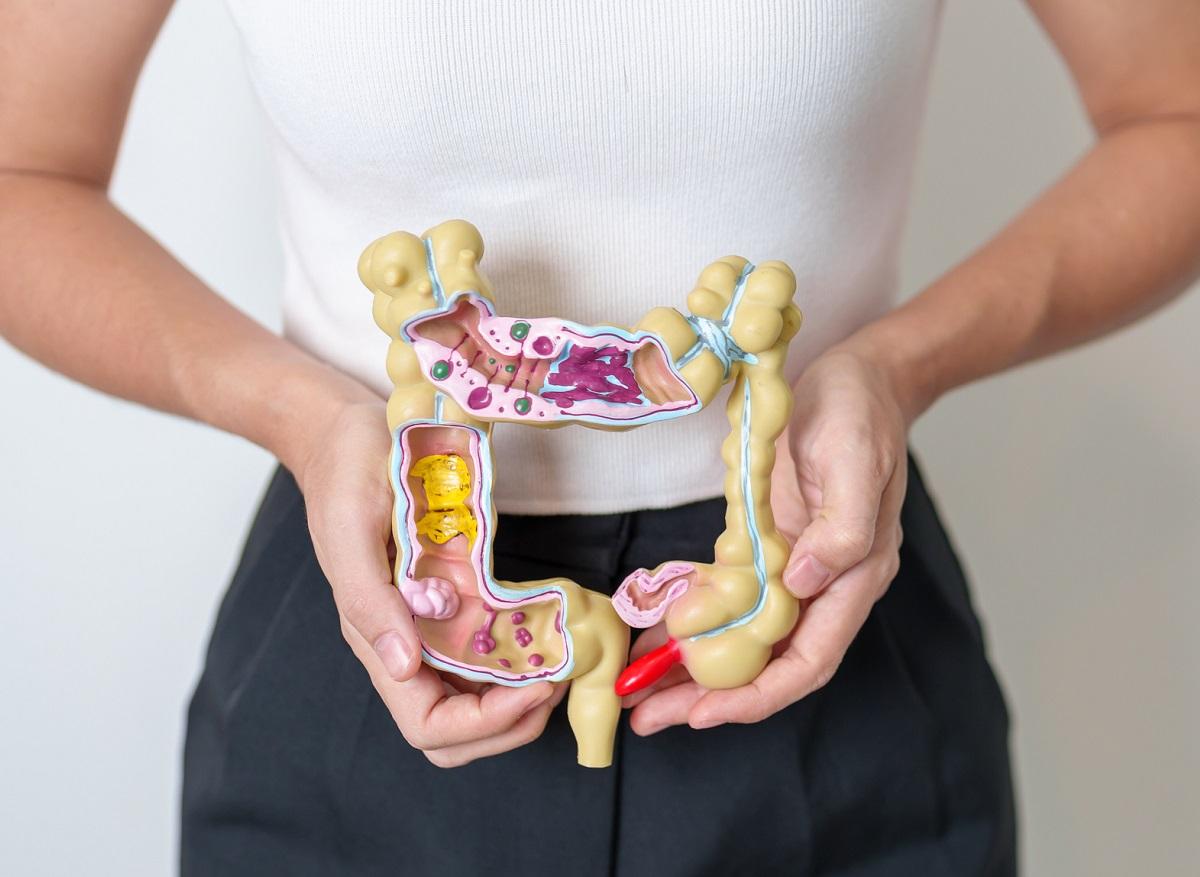Inflammatory bowel diseases are strongly associated with gout attacks. This would be particularly the case for Crohn’s disease.

- A study shows an association between gout attacks and chronic inflammatory bowel disease.
- It is stronger between Crohn’s disease and gout attacks.
- With appropriate treatment, it is possible to reduce the frequency of these attacks.
More than 200,000 people suffer from chronic inflammatory bowel disease, according to figures from theInserm. The term refers to different diseases, all characterized by inflammation of the walls of the intestine. The main symptoms are intestinal, such as stomach aches or diarrhea, but they can also affect other parts of the body. “In 20% of cases, patients present extradigestive manifestations of their disease: arthritis (inflammation of the joints), psoriasis (skin inflammation) or even uveitis (eye inflammation)”, specifies Inserm. According to a new study, IBD could be associated with another pathology: gout. The authors develop their thesis in the specialized journal JGH Open.
IBD and gout: a link with uric acid?
Gout attacks result from excess uric acid in the blood, which causes deposits of uric acid microcrystals in the joints and surrounding tissues. “Studies show impaired uric acid metabolism in IBD”, recall the authors of this research, scientists from the Cleveland Clinic, in the United States. They decided to work on the potential association between these two chronic diseases.
Gout attack: people with IBD are at greater risk
To achieve this, they relied on data from nearly 250,000 people suffering from Crohn’s disease or ulcerative colitis. “Researchers found that 4.3% of patients with ulcerative colitis and 5.61% of patients with Crohn’s disease also had gout., they conclude. They also observed that men were more present in the ulcerative colitis and gout group than in the Crohn’s disease and gout group. “For patients with Crohn’s disease and ulcerative colitis who underwent bowel resection, the association with gout was stronger than in those without surgery.”, they add. This operation is offered to people who are resistant to treatment. “After ten years of progression of the disease, more than one in two patients has undergone an intervention to remove the most affected segment of their digestive tract.specifiesInserm.

IBD: how to identify a gout attack?
For the authors, several pathophysiological mechanisms could explain this association between gout attacks and IBD. “We recommend that IBD patients who present with new-onset arthritis be thoroughly investigated for gout.”, they recommend. Health Insurance indicates that the diagnosis of gout is carried out in different stages. The first consists of identifying the presence of risk factors, such as family history, then health professionals estimate the frequency of attacks. Finally, examinations make it possible to identify uric acid deposits under the skin and to measure its dosage in the blood. “The initiation of a basic treatment allows a reduction in serum uric acid and gout attacks become rare.warnsHealth Insurance.
















